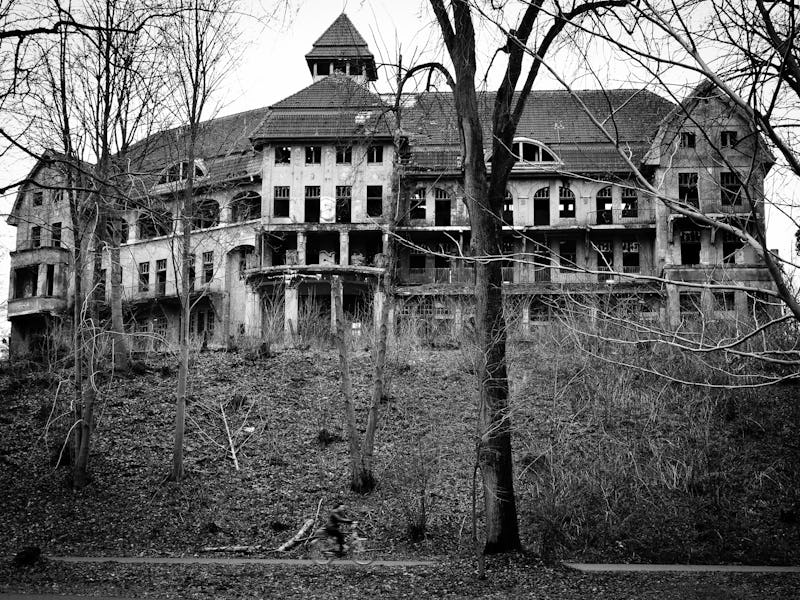Why Haunted Houses Scare Us — Even If We Know They're Fake
Your brain doesn't know any better.

Leaves are changing colors and candy corn is on store shelves, which means it’s the season for paying people to scare us on purpose.
But this brings up an interesting question: Why are we scared in certain situations when we know heading into said situation that we’ll be fine? This isn’t limited to just haunted houses: consider roller coasters or horror flicks or even (virtual) haunted houses. We know we’re not going to fall out of the roller coaster seat, that the movie is not real and portraying a scene with actors, that the masked man that jumps out in a dark, cobwebbed hallway isn’t going to hurt us.
So why do we get scared, and why do we still pay to be afraid when we know there’s no real threat?
It’s got a lot to do with how your body goes into overdrive when you confront a stressful (or in this case, downright frightening) situation. When a bloody zombie swinging an ax swerves into you in a haunted house, cortisol — your body’s anti-stress hormonal defense — and a team of neurotransmitters — norepinephrine, dopamine and epinephrine (aka adrenaline, the infamous “flight or fight” response) — are released. Your heart rate and your breathing skyrocket; your blood vessels dilate, shooting more oxygen to your brain. Neuropeptide S, a protein in your brain, helps you feel more alert. Sugars and fats come out of storage for an energy boost. In the brain, the amygdala’s first and dominant emotional response is fear. Your brain puts all its resources into dealing with the problem at hand, so rational thought gets suspended.
Even the obviously fake stuff can scare us.
This all means that even though you logically know you’re safe, your brain pushes that logic to a corner of your rational, thinking self and sort of tricks you into thinking you’re part of a live horror show. In fact, knowing you’re about to walk into a dark house with a maze of rooms full of terrifying characters can actually prime you for a stronger fear response.